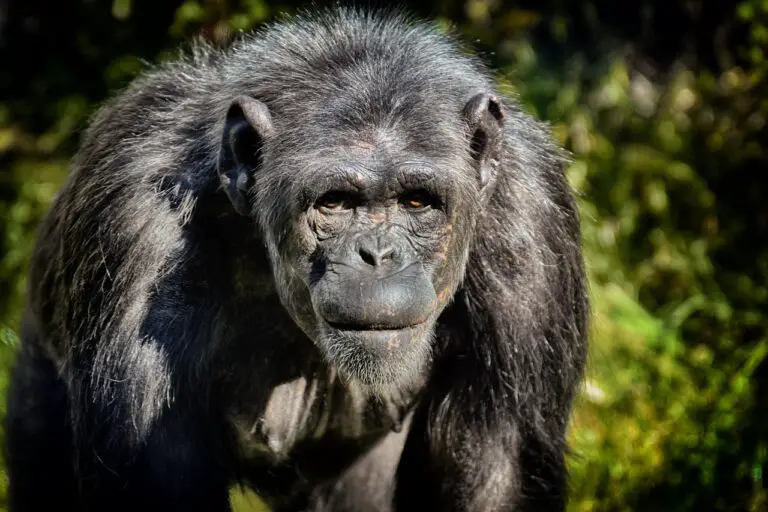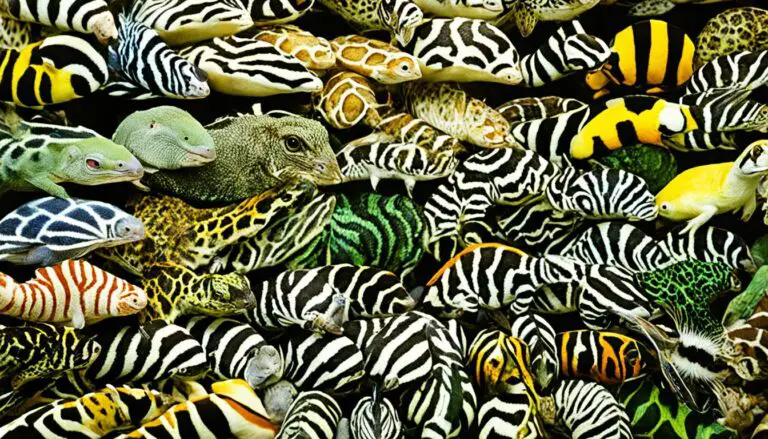Exotic Pet Ownership Regulations Guide
Welcome to our comprehensive guide on exotic pet ownership regulations. If you’re considering owning an exotic pet, it’s important to familiarize yourself with the legal requirements and regulations that govern pet ownership. Understanding these regulations will not only ensure the well-being of the animals but also help protect the environment and native species. In this guide, we will explore the pet ownership laws, exotic pet restrictions, and legal requirements for owning exotic pets, with a particular focus on the regulations for keeping exotic animals in the state of Florida.
Exotic pet ownership regulations aim to strike a balance between allowing responsible individuals to enjoy the unique companionship of exotic animals while ensuring the safety of both the animals and the general public. Each state has its own specific regulations, so it’s essential to research and understand the laws in your particular state before bringing an exotic pet into your home. In this guide, we will provide you with valuable information regarding exotic pet ownership regulations, making it easier for you to navigate the complex landscape of pet ownership laws.
Key Takeaways:
- Familiarize yourself with the exotic pet ownership regulations in your state
- Ensure you meet the legal requirements for owning an exotic pet
- Understand the restrictions on keeping exotic animals
- Never release exotic pets into the wild – it is illegal and can have serious environmental impacts
- Consider participating in an exotic pet amnesty program if you can no longer care for your pet
Permit Requirements for Different Classes of Wildlife
When it comes to owning wildlife as personal pets, different classes of animals have varying permit requirements. Let’s take a closer look at the permits needed for each class:
Class I Wildlife
Class I wildlife includes large and potentially dangerous animals like lions and tigers. These animals cannot be possessed as personal pets and require special permits for ownership.
Class II Wildlife
If you’re interested in owning certain monkeys or cougars, you can obtain a personal pet permit. However, taking them in public requires an additional permit for exhibition purposes.
Class III Wildlife
Raccoons, skunks, and foxes fall under Class III wildlife. These animals can be owned with a personal pet permit. If you wish to exhibit them in public, an exhibition permit is also available.
Venomous Reptiles
Owning venomous reptiles in Florida has specific requirements. A permit specifically for possession and exhibition is necessary to legally own and exhibit these reptiles.
It’s important to note that these regulations are in place to ensure the safety of both the owners and the community. By following the necessary permit requirements, individuals can responsibly enjoy the companionship of exotic wildlife while adhering to the law.
Laws on Releasing Exotic Pets and Environmental Impact
Releasing exotic pets into the wild is illegal in Florida and can have significant environmental consequences. Many non-native reptiles and amphibians in the state were introduced through the pet trade, and invasive plants and animals in Florida cost millions of dollars each year. Releasing exotic pets can disrupt the natural habitat, food chain, and spread diseases, leading to the decline of native species.
Florida has an Exotic Pet Amnesty Program that allows individuals to surrender exotic pets they can no longer care for, ensuring they are placed in appropriate facilities. It is important for exotic pet owners to responsibly care for their pets and explore all options before considering releasing them.

Exotic Pet Ownership Regulations in Other States
Exotic pet ownership regulations vary among states in the United States. It is important for potential exotic pet owners to research and understand the specific laws and regulations in their state regarding the ownership of exotic animals. Here is a summary of some key regulations in different states:
States with Complete Ban on Private Ownership
- California: Private possession of most exotic animals is prohibited.
- New York: Ownership of certain wild animals, such as big cats and primates, is not allowed.
- Hawaii: The state has strict laws that prohibit private ownership of most exotic animals.
States with Partial Bans or Permit Requirements
In several states, exotic pet ownership is partially restricted and requires permits:
| State | Summary of Laws |
|---|---|
| Florida | Personal possession of certain exotic animals is allowed with permits for private ownership and exhibition. |
| Texas | Exotic pet ownership is regulated by county and city laws, with some areas requiring permits. |
| Ohio | Permits are required for ownership of certain exotic animals. |
Regulation of Sale and Possession
The sale and possession of exotic animals in the United States are regulated by federal, state, and local laws. Born Free USA, an organization advocating against private ownership of wild animals, strongly discourages purchasing and possessing exotic animals.
“We believe wild animals belong in the wild, not in private homes or zoos,” says Adam M. Roberts, CEO of Born Free USA.
It is crucial for individuals considering owning an exotic pet to familiarize themselves with the laws in their state to ensure compliance and responsible ownership.

Conclusion
Owning an exotic pet can be a unique and fulfilling experience, but it is important to navigate the pet ownership laws and regulations to ensure a legal and responsible ownership. This comprehensive guide has provided an overview of exotic pet ownership regulations in Florida and emphasized the importance of understanding and complying with the specific permit requirements and restrictions in your state.
By familiarizing yourself with the exotic pet ownership regulations guide, you can legally own and enjoy the companionship of exotic pets while safeguarding the welfare of these animals and the environment. Remember to acquire exotic animals only from legal sources and never release them into the wild to prevent the introduction of invasive species and the disruption of native ecosystems.
Navigating the pet ownership laws may seem daunting, but it is essential for the well-being of both the animals and the pet owners. By following the regulations, obtaining the necessary permits, and responsibly caring for your exotic pet, you can have a rewarding and fulfilling experience as a legal owner of exotic animals. Always prioritize the health, safety, and happiness of your pets while respecting the legal boundaries.
FAQ
What are the legal requirements for owning exotic pets in Florida?
In Florida, owning wildlife species as personal pets requires a permit. Permits are only issued for captive-bred animals obtained from legal sources.
Do I need a permit to own nonvenomous reptiles, amphibians, small mammals, or birds as pets in Florida?
No, you do not need a permit to own nonvenomous reptiles, amphibians, small mammals like gerbils and hamsters, or birds like parrots and canaries as pets in Florida.
Can I own large and potentially dangerous animals like lions and tigers as personal pets in Florida?
No, Class I wildlife, which includes large and potentially dangerous animals like lions and tigers, cannot be possessed as personal pets in Florida.
Can I own monkeys or cougars as personal pets in Florida?
Yes, certain monkeys and cougars, classified as Class II wildlife, can be owned with a personal pet permit in Florida.
Can I take my pet monkey or cougar in public if I have a personal pet permit?
No, if you have a personal pet permit for owning a Class II wildlife species like a monkey or cougar, a separate permit for exhibition is required to take them in public in Florida.
Can I own raccoons, skunks, or foxes as personal pets in Florida?
Yes, raccoons, skunks, and foxes, which fall under Class III wildlife, can be owned with a personal pet permit in Florida.
Is a separate permit required to exhibit raccoons, skunks, or foxes in public in Florida?
Yes, if you want to exhibit raccoons, skunks, or foxes in public in Florida, a separate exhibition permit is required, in addition to the personal pet permit.
Can I legally own venomous reptiles in Florida?
Yes, but owning venomous reptiles in Florida requires a specific permit for possession and exhibition.
Is it legal to release exotic pets into the wild in Florida?
No, releasing exotic pets into the wild is illegal in Florida. It can have significant environmental consequences and lead to the introduction of invasive species.
What is the Exotic Pet Amnesty Program in Florida?
The Exotic Pet Amnesty Program in Florida allows individuals to surrender exotic pets they can no longer care for, ensuring they are placed in appropriate facilities. This helps prevent the release of exotic pets into the wild.
Do exotic pet ownership regulations vary from state to state in the United States?
Yes, exotic pet ownership regulations vary from state to state in the United States. Some states completely ban private ownership of exotic animals, while others have partial bans or require permits for possession.
What should prospective exotic pet owners do before bringing an exotic animal into their homes?
Prospective exotic pet owners should research and understand the specific laws and regulations in their state regarding the ownership of exotic animals before bringing one into their homes.
Source Links
- https://gyr.fortlauderdale.gov/greener-government/natural-resources-preservation/wildlife-habitats/exotic-pet-and-fish-guidelines
- https://www.bornfreeusa.org/campaigns/animals-in-captivity/summary-state-laws-exotic-animals/
- https://myfwc.com/license/captive-wildlife/personal-pet/
Peter Stones is the founder of Exotic Pets Place, the leading online resource for exotic pet care information.
With over 10 years of hands-on exotic pet ownership experience, he is deeply passionate about sharing his expertise to help others properly care for their unusual pets.
When he's not writing extensively researched articles or connecting with fellow exotic pet enthusiasts worldwide, you can find Peter at home tending to his own beloved menagerie of exotic animals.







